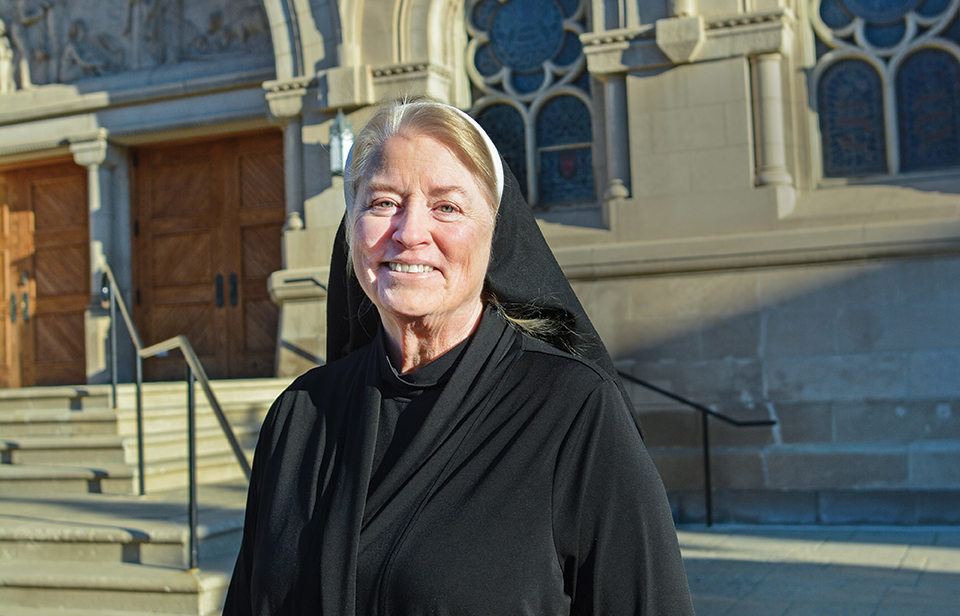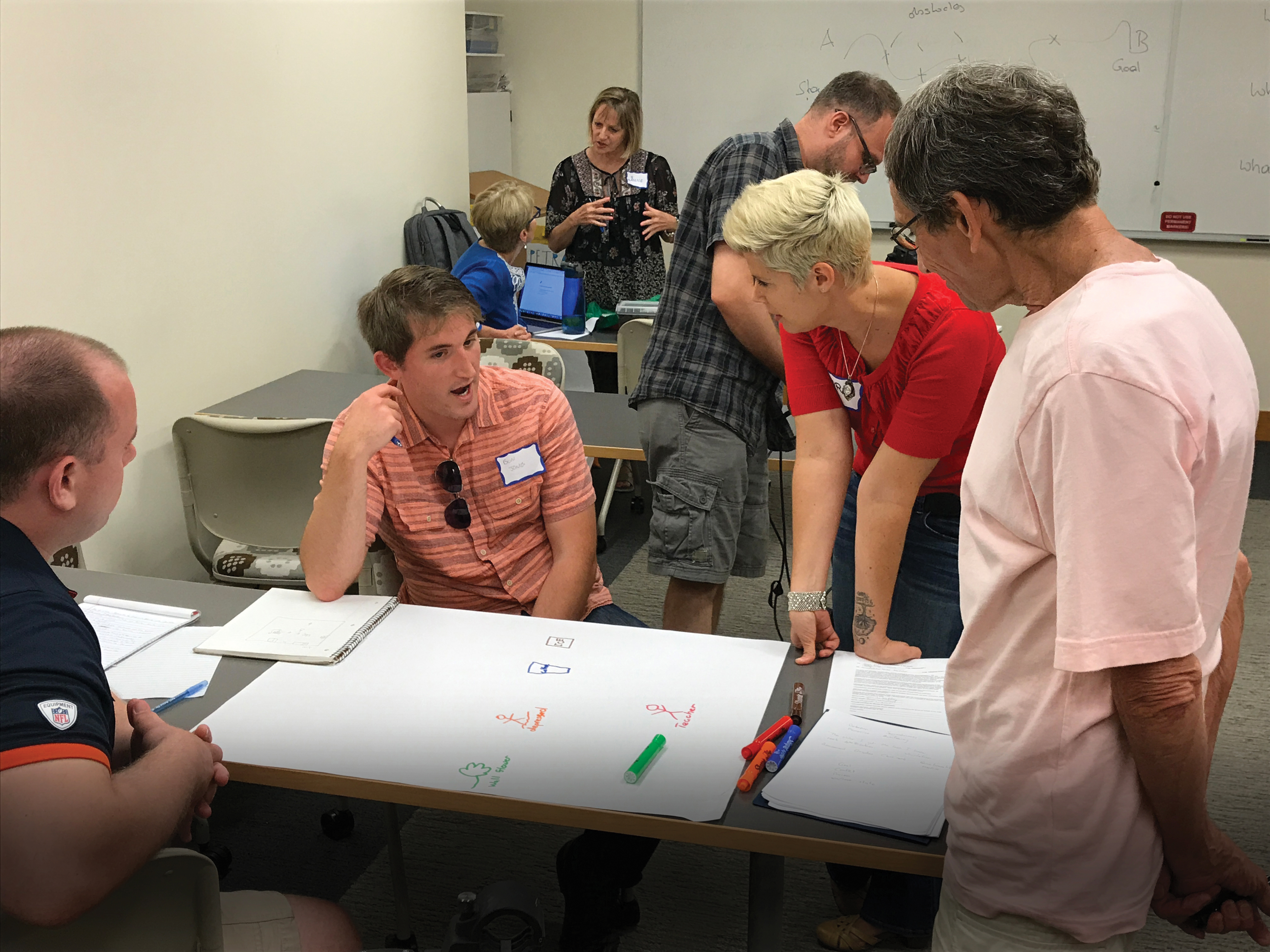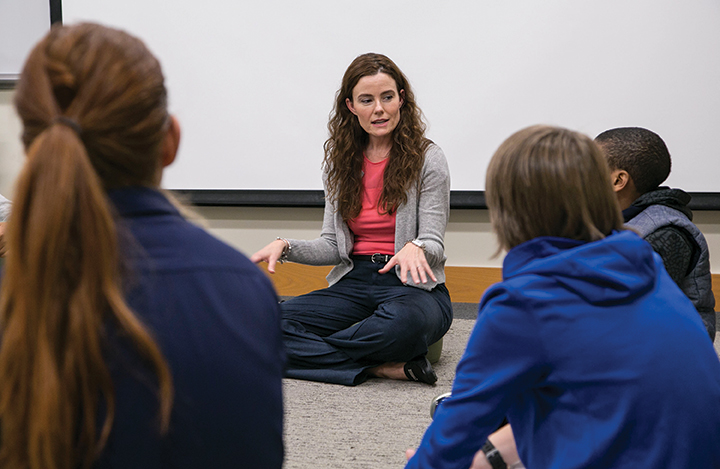
“DePaul’s mission and our Vincentian personalism, plus our role as an urban educator, puts us in a unique position to support and strengthen Catholic education in Chicago,” says Sister Mary Paul McCaughey, O.P., the college’s Catholic school leadership coordinator.
Many people don’t realize how different the role of a Catholic school principal is compared with one in a public school, says Barb Rieckhoff, associate professor and director of the educational leadership master’s program.
“Principals are the faith leaders of the schools. They’re also carrying the responsibility for running a school and serving as the instructional leader. It’s a unique role,” says Rieckhoff. “They need a special lens, a special kind of training, and that’s why we’re so excited about our faith-oriented programs.”
The college offers three Catholic oriented master’s degrees in educational leadership: teacher leader, Catholic leadership and principal preparation. The latter program is specifically designed for aspiring principals, says Sr. McCaughey.
“The archdiocese will need to replace a large number of principals who will be retiring in the near future,” she says. “Our goal is to get leaders in place who can hire the best teachers, who can then provide the best education for students in Catholic schools.”
Graduate enrollment by employees of Catholic schools has increased in part because DePaul just renewed the Catholic Schools Faith Project. Through this initiative, DePaul is collaborating with the archdiocese’s Office of Catholic Schools in offering a generous scholarship program.
“These financial contributions reduce the cost of the program to under $11,000 for a master’s degree and licensure,” says Rieckhoff. “Students get monthly mentoring and coaching throughout the program and their first year of leadership, which is a huge plus.”
Ongoing Professional Development
To further support principals, the archdiocese requested that the college conduct a Catholic school leadership efficiency study. Rieckhoff and Donna Kiel, director of the Office of Innovative Professional Learning, are shadowing 20 percent of the principals in the area to identify effective time management techniques and areas for improvement.
“We’ll provide the archdiocese with results of the study to support them in providing the best resources to principals,” says Kiel. The research also may provide insight about what new educational opportunities are needed by principals.

Those opportunities may be part of the COE’s new micro-credentialing programs, which are drawing substantial interest from Catholic institutions. In fact, six of the seven schools in the pilot program are Catholic, Kiel says.
“Micro-credentials are a great way to customize professional development to what teachers in Catholic schools need to know,” says Kiel. “One of our micro-credentials is in faith leadership, which we’re doing for potential principals. Catholic school teachers also are interested in the transformational teaching credential.”
The COE’s new online program in special education “is going to be an amazing gift to Catholic schools,” adds Sr. McCaughey. She predicts that many K-12 teachers will complete the four-course sequence to add the Learning Behavior Specialist 1 endorsement to their professional portfolios.
Counseling Support
Since last year, the COE’s Education and Counseling Center (ECC) has been the primary referral source for Catholic schools in Chicago.
“Referrals are very easy. All the principal, school counselor, teacher or parent has to do is call or email me. No family is turned away for inability to pay,” says Martha Mason, ECC director. Students, and sometimes family members, come to the center weekly for support. Meanwhile, Mason coordinates strategies with counselors and teachers at their schools.

“We get lots of kids for tutoring, counseling and special groups. We run mindfulness and strengths-building groups for kids. We’re really trying to equip them with the resources they need to be successful at home, at school and going forward,” she says.
Archdiocesan staff eagerly accepted Mason’s offer to provide crisis-counseling support to principals and teachers and sometimes directly to students who have an emotional breakdown while at school. “Not all of the Catholic schools have counselors or resources on-site,” Mason says. “We’re really meeting an area of need.”
Interns from the COE’s counseling program gain experience working with students from Catholic schools, and Mason hopes to include them in future on-site consultations. She also wants to expand the program to offer professional development opportunities for teachers and counselors at Catholic schools.
Priority Placements
“When students request to be placed in a Catholic school for field experiences and/or student teaching, the Catholic school administrators are quick to accept our request. They are eager to mentor our student teacher candidates,” says Kate Liston, director of field experiences and student teaching. Several schools, including De La Salle High School, St. Andrew School and Josephinum Academy of the Sacred Heart, host at least one student every quarter.
Principals from many non-Catholic schools, including Chicago Public Schools, look favorably on applicants with Catholic school experience. “Students are really learning excellent skills in terms of classroom and time management,” Liston says.
Liston also reaches out to COE alumni when Catholic school principals contact her with openings. “I’m a product of Catholic schools—elementary, high school and college—like my sons. I know what a wonderful experience this can be.”
For more information about Catholic-oriented degrees, visit bit.ly/CatholicMasters.